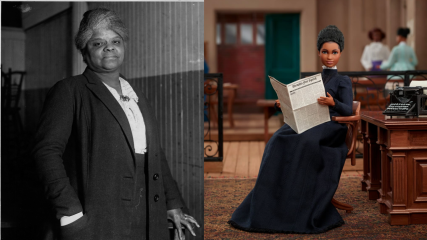How Americans really feel about critical race theory
OPINION: A recent poll shows that the right's national PR campaign against critical race theory has largely fallen on deaf ears and their messaging isn't in line with what most people think.

Editor’s note: The following article is an op-ed, and the views expressed are the author’s own. Read more opinions on theGrio.
There are so many times and so many ways Black people have become a political football in America. White people fought a war and almost broke up the country over whether or not we should be free. They started another war, the war on drugs, at a time when there wasn’t a major drug epidemic because it’s easier to repress Black people when it’s “crime” or “drugs” or “safe streets.”
The recent war over critical race theory has been a novel way of using Black people as a political football or as a way to energize white voters and make them think there’s a real threat to their kids that they need to stand up and fight. Once again, we are supposedly the threat that they need to fear. But in this conversation, we should put critical race theory in quotes because we’re not really talking about actual critical race theory—the legal theory that racism has shaped America. We’re talking about “critical race theory”—a right-wing bogeyman that’s telling white adults that schools are teaching white children to hate themselves and feel guilty about American history and that it must be stopped.
A recent poll from CBS/YouGov sampling a robust 2,500 people found that despite widespread right-wing caterwauling about CRT, most Americans say they know little to nothing about CRT. Sixty-five percent say they’ve heard either “a little” or “nothing” about it. The right’s national PR campaign has largely fallen on deaf ears, and their messaging isn’t in line with what most people think—68 percent of those surveyed said, “teaching about race in America makes students understand what others went through.” Only 23 percent agreed with the GOP’s message that it makes students “feel guilty about past generations.” Eighty-seven percent said books should not be banned for “discussing race” or “depicting slavery.” Most people do not want history to be erased.
This is largely good news—most Americans disagree that teaching students about race and America’s dreadful history on race is a bad thing. Despite all the videos we’ve seen of people protesting school boards and all the Republican noise, most Americans have not even heard about CRT. The big schism in the poll is this—among those who have heard of CRT, 81 percent of Democrats say they have a favorable opinion of CRT while 86 percent of Republicans say they have an unfavorable opinion.
So the Republican argument around CRT isn’t winning over new voters, but it is connecting with people who are already in their tent. Once again, Republicans are using Black people as a political football—CRT is triggering white victimhood and motivating Republicans to vote. But most Americans see through this smokescreen.
CRT has become the right’s new imaginary enemy—their old imaginary enemies include the people who stole the 2020 election, the people who vote illegally and are the reason why we need voter ID, the people who believe in climate change, whoever gave Obama a fake birth certificate, whoever really attacked the Capitol on Jan. 6. It’s all part of this bizarro bubble they live in where facts go to die, Black people are the problem and whites are the real victims. The erasure of Black history is critical to maintaining that fiction. Still, for now, most Americans understand that what we call Black history is American history, and it’s valuable for Black and white children to learn it.

Touré is the host of the podcast “Toure Show” and the podcast docuseries “Who Was Prince?” He is also the author of seven books.
TheGrio is FREE on your TV via Apple TV, Amazon Fire, Roku, and Android TV. Please download theGrio mobile apps today!


